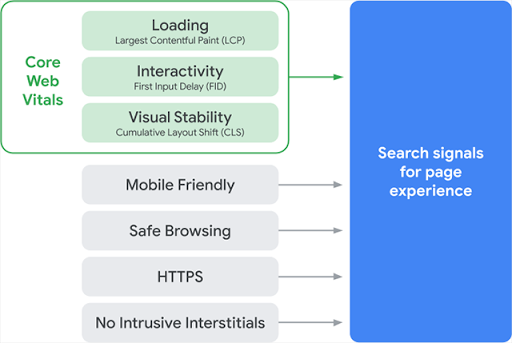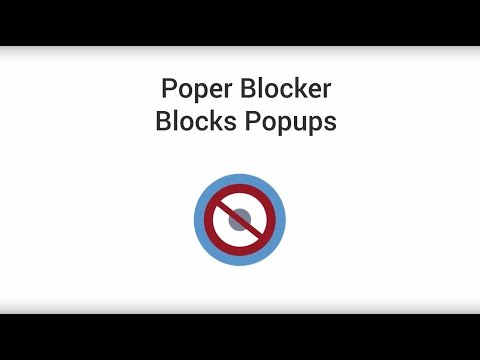Introduction

In June 2021, Google is carrying out the so-called Page Experience Update. This reorganizes the composition of the ranking factors for the search result listings. Factors that have so far had little or no influence on the rankings are to be weighted more heavily in the future.
In essence, it is, once again, about user-friendliness, usability, security and, last but not least, performance. Fast pages that are easy to use, especially on mobile devices, will continue to get more preference. Anyone who does not transmit their content securely, prepares it so that it is perfectly usable or does not deliver it quickly enough to impatient users will be left behind. After all that is known so far about the update, which has already started to roll out, it should lead to significant changes in the rankings.

How important is this update and what exactly is the schedule?
This update will have a massive impact on search rankings. Only a few years ago, when Google caused veritable earthquakes in the SEO area with unannounced updates to its algorithms at irregular intervals, the group behind the most important of all search engines has now started to announce important updates with a certain lead time so that all stakeholders have enough time to take precautions as far as possible for the expected changes.
The Google Page Experience Update was announced in May 2020. Six months later, Google found in Search Central that the use of services for evaluating usability and performance had increased significantly as a result. Although the world was firmly in the grip of the pandemic, Google’s announcement was followed by the intended and expected reaction. So the – approximate – date for the update was set right away: June 2021.
If Google announces an update a year in advance and does not schedule it for six months, everyone who is interested in their search engine rankings should take it very seriously. Something very big is rolling towards the online world here.
What will change with the Page Experience Update?
If you don’t prepare for the Google Page Experience Update in good time, you might experience an unpleasant surprise in spring. The exact effects can of course only be measured in retrospect this time. However, it is already clear that the multitude of far-reaching changes will set a lot in motion.
Rearrangement of the ranking factors
There are a number of ranking factors that have so far had little or no influence on the positions in search results, but which should be weighted more heavily in the future. In addition, there will be other “signals for user-friendliness of pages” that Google has not yet explicitly named as new or more heavily weighted ranking factors.
- Core Web Vitals
The biggest chunk in Google’s Page Experience Update are the so-called Core Web Vitals. On the basis of these measured values, Google determines very precisely how the individual pages of a website or shop are performing and evaluates them accordingly. On this basis, pages can – depending on the device type – receive an SEO bonus for search engine optimization or drop in the rankings.
Google wants to work to ensure that users are shown content quickly, that they do not have to wait to be able to interact with the page and that they are not annoyed by subsequently jumping around the display while the page is being opened:
- Largest Contentful Paint (LCP)
How much time passes before the main content is visible to the user?
Target value: less than 2.5 seconds
- First Input Delay (FID)
How fast can the user interact with the page? (The time between the first interaction and the browser reaction is determined.)
Target value: less than 0.1 seconds
- Cumulative Layout Shift (CLS) To
To what extent are already visible elements shifted during the loading process?
Target value: less than 0.1 (values between 0 and 1 are possible)
Google reserves the right to make changes to the evaluation criteria for these metrics. The adjustments required for optimization are technically very demanding and must be tailored individually for each case depending on the infrastructure used, the CMS or shop software and the content played.
In addition, they cannot be carried out globally for a shop or website, but have to be controlled individually for each type of page – to be precise, even for each page. It is therefore very important to start now at the latest to optimize your own pages for Google’s Core Web Vitals as ranking factors.

2. Optimization for mobile devices
Mobile friendliness has officially been a ranking factor since 2015 and has become more and more important ever since. The Page Experience Update is also announced as a further step in this direction: Buttons that are too close together and navigation elements that are too small will have an even more negative impact on rankings in the future.

Google will switch its index completely to mobile-first as early as March 2021. From this point on, only page content that can be viewed on mobile devices will be taken into account.
3. Safe browsing
Harmful content such as malware or fraudulent offers are recognized more precisely and lead to significant penalties. Reputable providers must ensure that Google does not falsely sanction them for misleading signals.

4. HTTPS security
Pages that are not encrypted using SSL / TLS and are still transmitted via HTTP instead of the HTTPS protocol will be rated even more critically by Google than before. It is important that the encrypted transmission is enforced (via HTTPS-only entry in the .htaccess) so that the Googlebot can no longer access content via an unsecured connection, although a valid SSL certificate is already available.

5. No More Pop-Ups
Google no longer wants to see disruptive interruptions (interstitials) in the user experience such as advertising banners or newsletter registration forms that are placed above the content. Anyone who uses such elements on their pages must be prepared for the fact that the rankings will suffer significantly after the Page Experience Update or – and this is expressly recommended – remove all disruptors of this type.

6. Marking ‘Good’ pages in search results
For the search results pages, Google has also promised that pages with good grades in the “Page Experience” area should be marked in a special way for users. This is now available in the Page Experience report on Google Search Console for website owners to see what exactly it is that these pages are doing right.

7. Headlines even for pages without AMP
Headlines should also be displayed for pages without AMP in the future. Nevertheless, the use of AMP is still recommended due to its good results in terms of user-friendliness.















